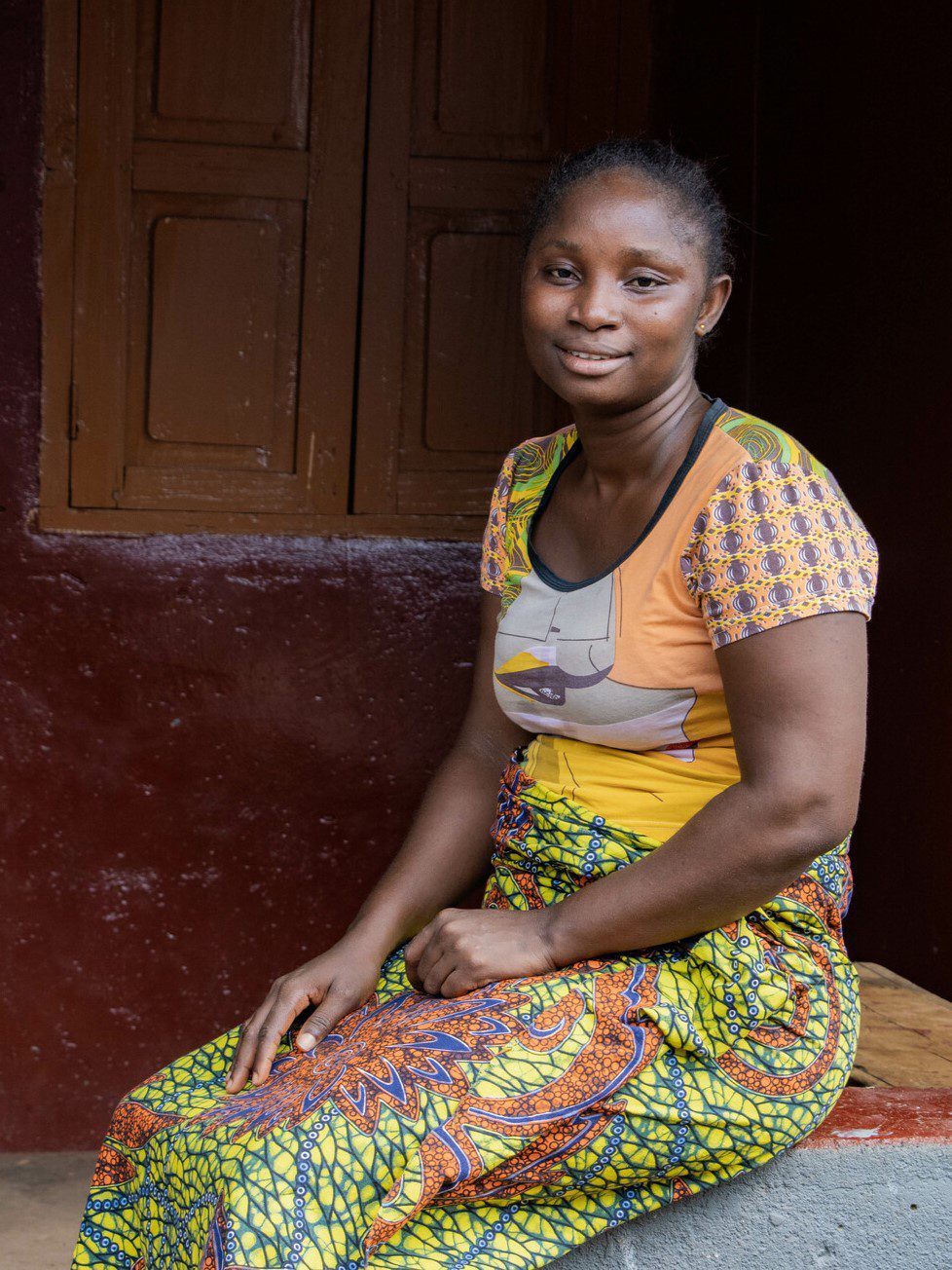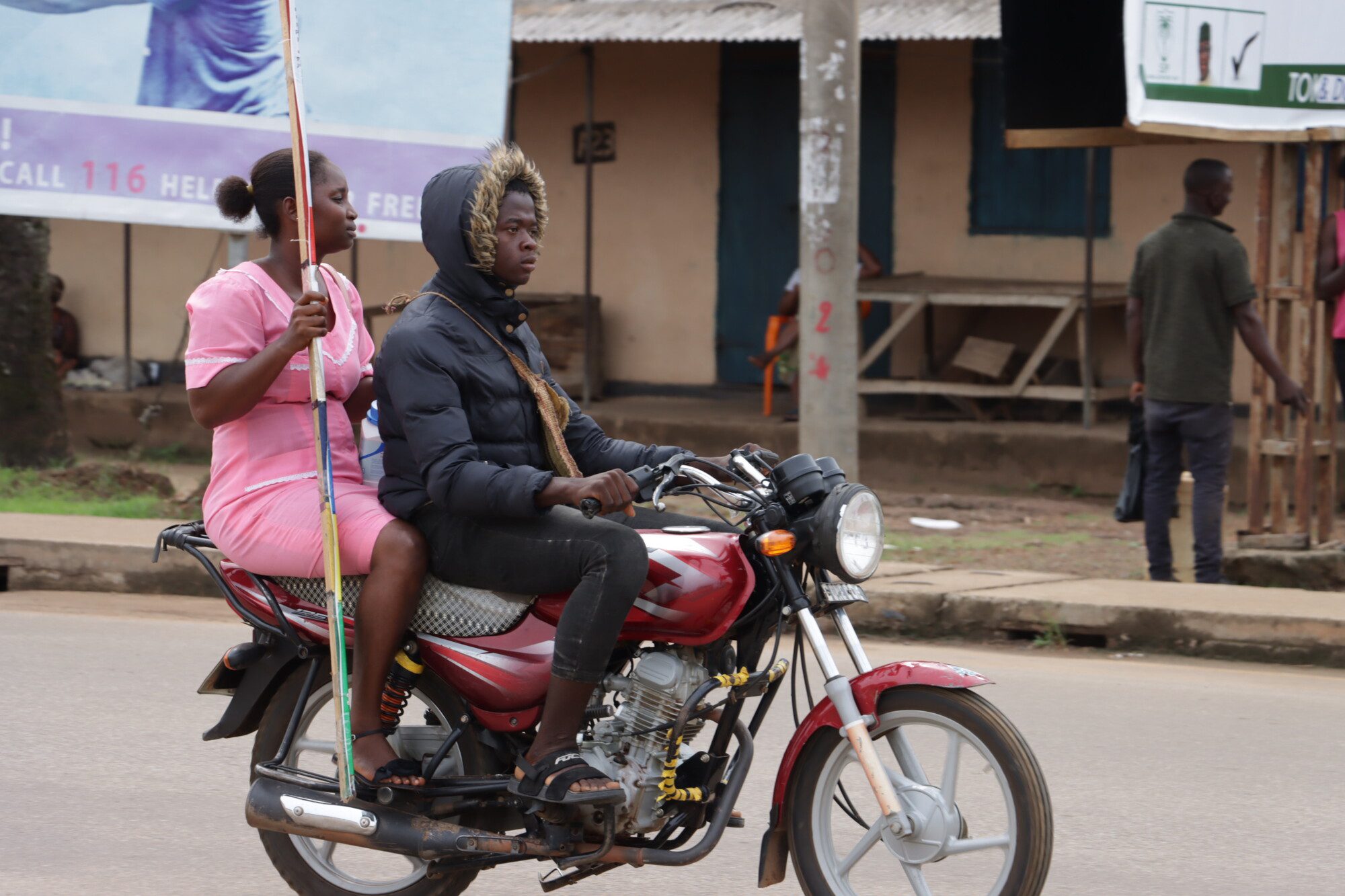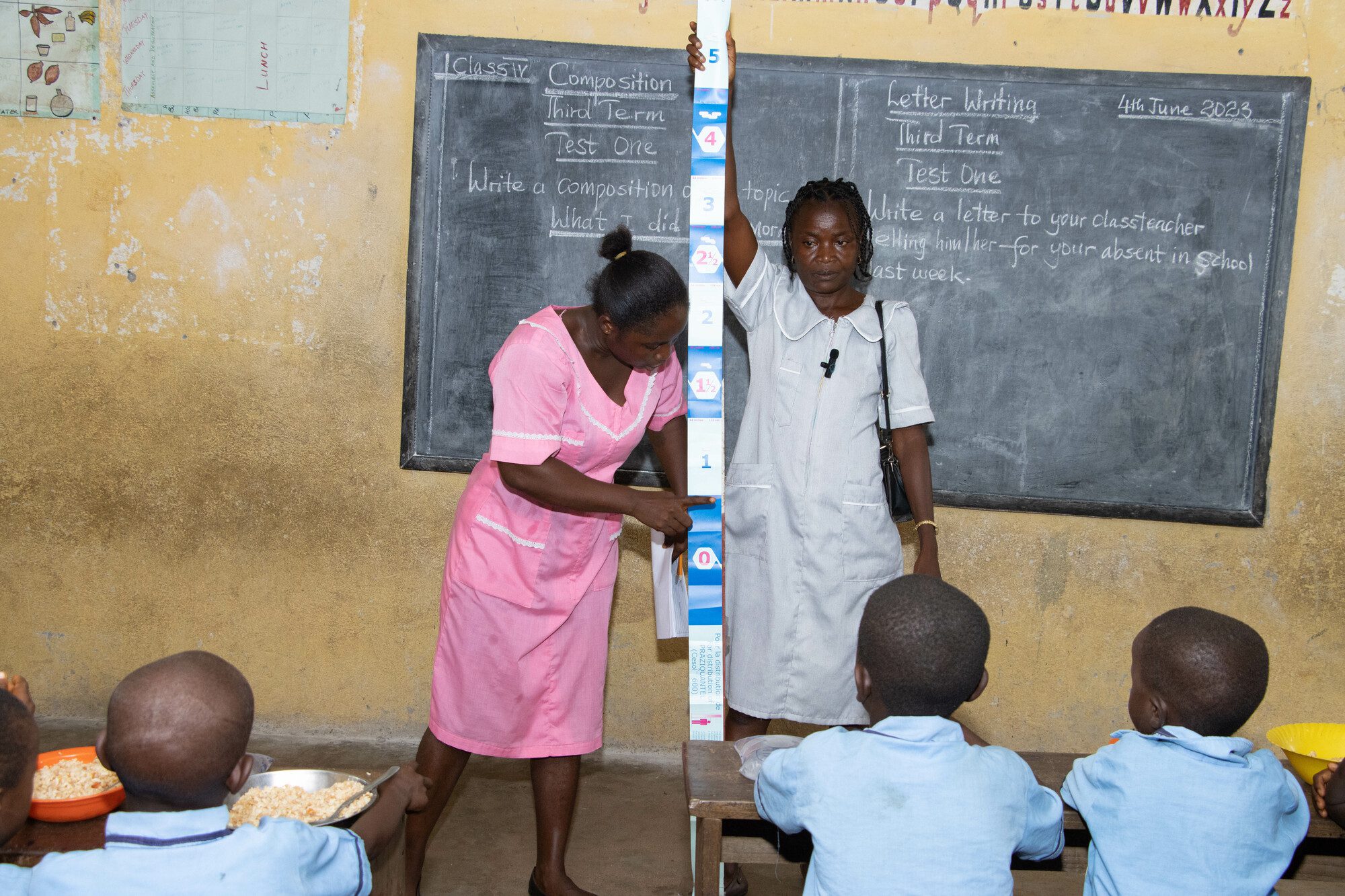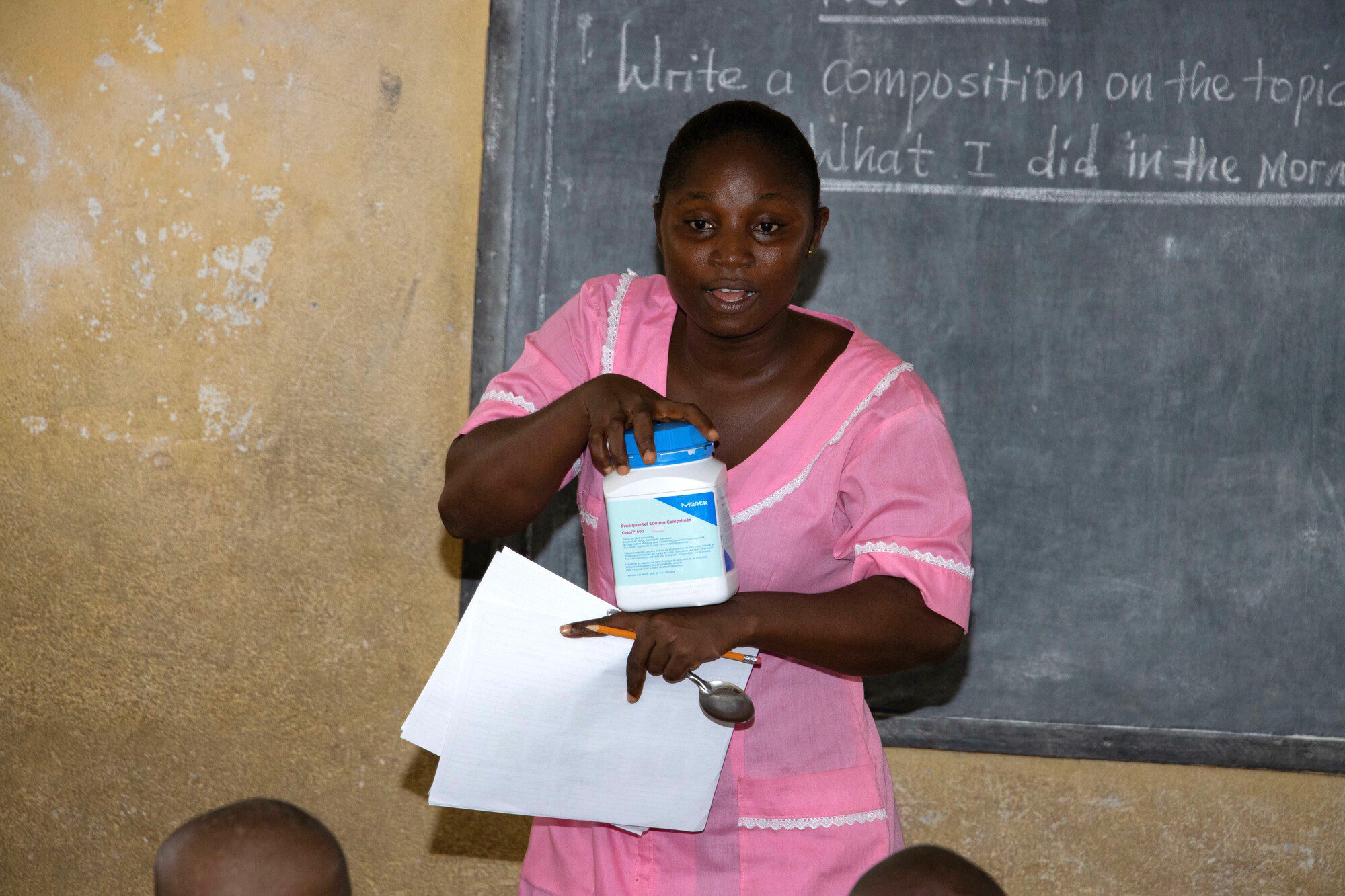Preventive Treatment Helps Build Healthy Futures for Children in Sierra Leone

Nurse Aminata Sama always dreamed of helping her community stay healthy. She thought her work would focus on helping people address minor health concerns and never imagined she would contribute to eliminating a devastating disease from Sierra Leone.
One of three children, Aminata’s father was a security guard and her mother traded local palm oil. Although neither of her parents had the opportunity to attend school, Aminata was determined to get an education and put herself through nursing school.
After graduation, Aminata was recruited as a nursing aide at the Kenema Government Hospital in Sierra Leone’s Eastern Province. She lives in Kenema District with her 18-month-old daughter, Haja Mariama, and her late brother’s 5-year-old son, Musa, who she adopted.
Soon after arriving at her post, Aminata learned that one of the major health issues children faced there was schistosomiasis – a neglected tropical disease caused by parasitic worms. In fact, Kenema District has the second highest rate of prevalence of the disease in Sierra Leone, after neighboring Kono District.
A Childhood Infection with Long-term Health Consequences
Spread through contaminated water, schistosomiasis can cause debilitating, chronic symptoms if left untreated. More than 250 million people globally require preventative treatment for the disease, with 90% living in Africa. A lack of clean water and adequate sanitation contributes to the spread of schistosomiasis.
School-aged children are particularly at risk due to inadequate hygiene and frequent contact with infested water while playing or bathing. In children, the disease may also cause malnutrition, anemia, stunted growth, and delayed cognitive development. Without treatment, these symptoms can make it difficult to obtain an education or earn an income, which may trap the child in a cycle of poverty and prevent them from realizing their true potential.

“The consequences [of infection] are dire,” says Aminata. “In the face of limited access to clean water sources and inadequate sanitation facilities, these innocent children unknowingly become hosts to parasitic worms that wreak havoc on their fragile bodies.”
Helen Keller Intl has partnered with the government of Sierra Leone, with funding from USAID’s Act to End Neglected Tropical Diseases (NTDs) | West Program, to help build healthy futures by curbing the spread of schistosomiasis through annual mass treatment. With training, resources, and support from Helen Keller, community health heroes like Aminata distribute preventive medication to the entire eligible population of nine districts in Sierra Leone where the disease is endemic.
Reaching Students with Preventive Treatment to Build Healthy Futures
Due to their high risk of infection, school-aged children are the primary focus of the preventative treatment campaigns. Aminata is part of a nationwide team of 30,000 volunteer community health heroes who go from school-to-school to administer the anti-parasitic medication praziquantel to all children between the ages of six and eleven.
“Every child deserves a chance at a healthy life, free from preventable diseases,” says Mohamed Koroma, the Neglected Tropical Disease Focal Point in Kenema. “Aminata’s dedication and commitment to combating these worm-related diseases have been instrumental in our efforts to eliminate schistosomiasis. Her work on the ground is invaluable in ensuring that every child receives the medication they need.”
Every child deserves a chance at a healthy life, free from preventable diseases.
Mohamed Koroma, Kenema Neglected Tropical Disease Focal Point
Over the course of a two-week campaign, Aminata and the other volunteers visit approximately 4,000 primary schools to provide preventative treatment to 1.4 million children. School authorities notify students’ parents and guardians about the drug distribution and its benefits ahead of time. The children are also given a meal, usually rice and beans, before they take the medication to help counter side effects.
In the classroom, Aminata determines how much medication to give each student using a dose pole – a measuring stick divided into sections indicating how many pills a person needs based on their height. Dose poles are a simple, inexpensive, and portable tool to help health workers distribute the correct amount of medication to both children and adults. Aminata carries her dose pole to every school she visits.

“The work of Aminata and her team is critical in reaching the most vulnerable children in our community,” says Victoria Turay, Acting Neglected Tropical Disease Program Director for Helen Keller in Sierra Leone. “Providing access to medication and education can empower communities to fight against these neglected tropical diseases. Aminata’s dedication to her patients and her community is truly inspiring.”
Thanks to Aminata and her team of healthcare heroes, schistosomiasis and other worm-related diseases will soon be a thing of the past in Sierra Leone.
“I see the impact of my work in the smiles of the children I treat,” Aminata says with pride. “Knowing that I am playing a part in ensuring their healthy future keeps me going every day. Together, we can defeat these diseases and build a brighter future for our community.”

Help community health heroes like Aminata create lasting change in their communities.









